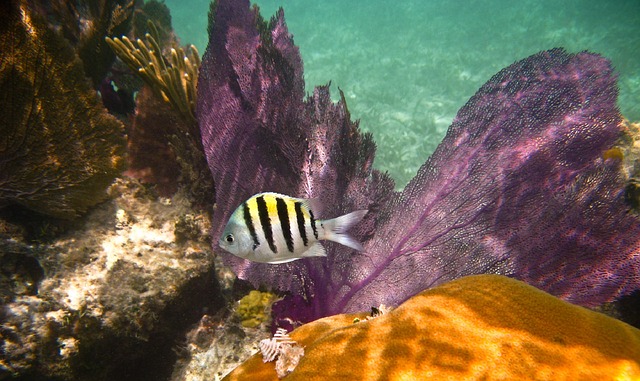Caribbean Sea under stress the past 30 years of data shows

License: Pixabay Author: Skeeze
A team of scientists from the Smithsonian Tropical Research Institute has just published the results of a monitoring program that has already completed 30 years on the health of the Caribbean coasts. It is one of the most complete efforts to understand how these ecosystems are behaving before the different environmental threats, including climate change and maritime pollution.
The Caribbean Coastal Sea Productivity Program (CARICOMP) demonstrated that water quality has deteriorated in 42 percent of the monitoring stations located along the basin in Barbados, Belize, Bermuda, Bonaire, Colombia, Costa Rica , Jamaica, Mexico, Panama, Puerto Rico, Florida and Venezuela.
The bad news about water quality contrasts with another more hopeful one, and that until now no significant increases in water temperature have been detected despite the advance of climate change.
“We are seeing important changes in local conditions, such as decreased visibility, associated with declining water quality and the increasing presence of people,” commented Iliana Chollett, a postdoctoral fellow at the Smithsonian Marine Conservation Program at Fort Pierce, Florida to the EurekAlert news portal, “but we are not collecting change data on a global scale, as global warming would indicate.”
Chollett clarified that satellites only measure surface temperature and underwater temperatures are much more variable, and it can take decades of data to reveal a significant change.
“A positive implication of this report is that people are capable of dealing with local change, regulating pollution and runoff,” said Rachel Collin, director of the Research Station of the Smithsonian Tropical Research Institute in Bocas del Toro, of the participating marine monitoring stations. “If people act together there is hope of reversing some of these changes.”